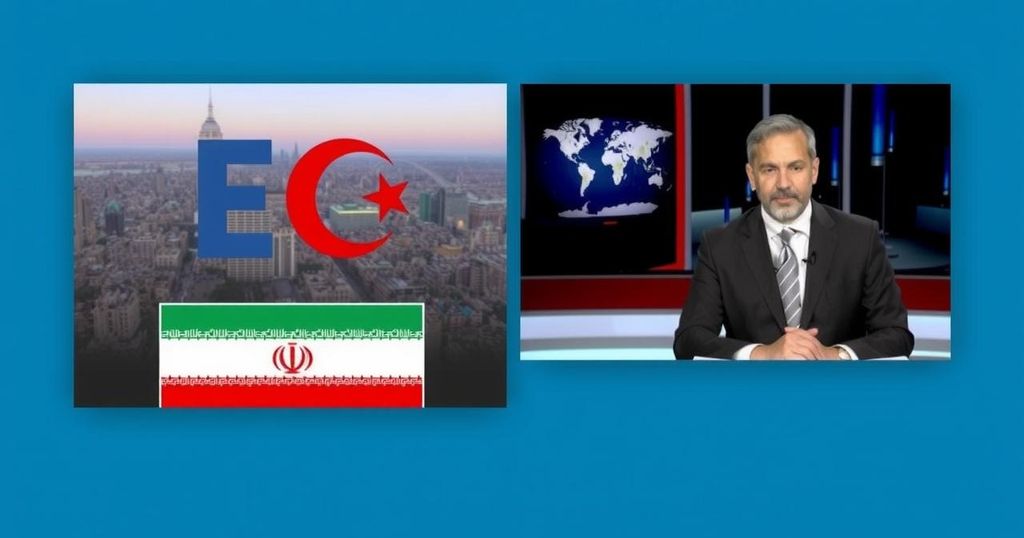Turkey Launches TRT Farsi: A New Persian Media Initiative Amid Regional Tensions

Turkey’s state broadcaster, TRT, launched its Persian-language service, TRT Farsi, on 18 December, aiming to expand its reach amid strained relations with Iran. The initiative seeks to foster cultural connections while challenging Western media narratives and targets over 130 million Persian speakers globally, despite controversy surrounding its intentions.
On 18 December, Turkey’s state broadcaster TRT inaugurated its Persian-language service, TRT Farsi, marking an enhancement in its international outreach amid contentious relations with Iran. This initiative adds to Turkey’s media landscape, following in the footsteps of existing outlets such as Iran International, BBC Persian, and VOA Farsi. Fahrettin Altun, head of Turkey’s Presidential Communications Directorate, emphasized the cultural ties between the two nations and the importance of providing content in Persian. In this strategic move, TRT aims to engage over 130 million Persian speakers globally, thereby repositioning itself in the media sphere dominated by Western narratives.
At the launch event held in Ankara, TRT Director General Mehmet Zahid Sobaci articulated the network’s objective to counter Western media hegemony. He stated the media has traditionally presented a one-sided view, but Turkey, under President Erdogan, seeks to challenge this narrative. Addressing pressing regional issues, Sobaci drew comparisons between the circumstances in Syria and Gaza, highlighting perceived injustices in both conflicts. This commentary came amidst a backdrop of fraying relations between Tehran and Ankara, especially following political upheavals in Syria.
The announcement has evoked controversy, particularly in light of earlier statements by Sobaci, who indicated that the channel’s intent was to disrupt Iranian media. However, at the launch, he adopted a more diplomatic tone, suggesting that TRT Persian would foster bilateral connections through a shared cultural heritage. Turkish Foreign Minister Hakan Fidan’s remarks about Iran needing to adapt in light of developments in Syria further complicated this media initiative’s reception, eliciting sharp criticism from Iranian outlets.
TRT’s extensive outreach efforts have resulted in significant engagement, boasting 11 billion views and 8 billion video watches across its language services. The broadcaster operates multiple platforms in various languages, striving to enhance dialogue and understanding. The launch of TRT Farsi can thus be seen as a strategic maneuver in the complex landscape of Middle Eastern media and political relations.
The launch of TRT Farsi occurs against the backdrop of increasingly complex relations between Turkey and Iran. Historically, cultural connections between these neighboring nations have been significant, yet modern political tensions have strained their interactions. The establishment of TRT’s Persian-language service reflects Turkey’s ambition to expand its influence in the region’s media landscape, especially in light of existing Persian-language channels that focus on Iranian affairs. Furthermore, this initiative is part of Turkey’s broader efforts to provide a counter-narrative to what they perceive as Western media dominance in shaping global perspectives.
The launch of TRT Farsi signifies a critical expansion of Turkey’s media strategy aimed at reaching Persian speakers worldwide. While it arises from increasing diplomatic tensions with Iran, TRT appears to position itself as a bridge for cultural dialogue despite political challenges. This initiative not only highlights Turkey’s intent to assert its media presence but also demonstrates the intricate interplay of cultural ties and geopolitical dynamics in the region.
Original Source: www.intellinews.com








